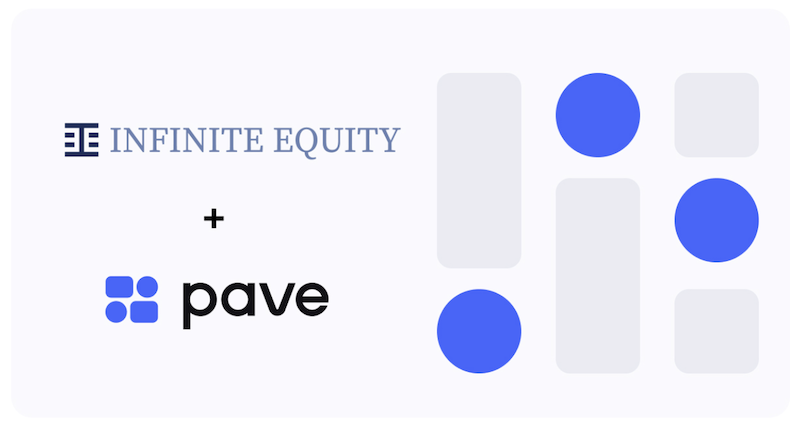The Progression of an Equity Strategy

Managing an effective equity strategy involves balancing your company’s equity philosophy, utilizing market benchmarks, and ensuring affordability. Internal and external forces, such as changes in leadership or market volatility, can tell us it’s time to review this balancing act. Let’s take a look at the most important factors to consider when evolving your equity plan.
Pave + Infinite Equity: Partnering to Drive Clarity Around Equity Benchmarks

For companies who are just starting to create formal compensation policies, having robust data to support those decisions is incredibly important. Without it, guesswork and bias can lead to poor decisions and eliminate trust with employees. If you have never run an equity program, there’s a lot to learn. From deciding how much equity you…
Employee Equity Pools: What are They & Why Do They Matter?

We’ll take a look at why the equity pool matters and why it needs to grow, but first let’s make sure we’re clear on what exactly the employee equity pool is.
Giving Equity: Considerations for Early-Stage Companies
Early-stage companies face a few unique challenges when it comes to offering equity. While it’s a powerful tool for attracting the right investors and employees, offering equity compensation also comes with dilution concerns, complexity, and required resources. We highlight some of the things early-stage companies should be aware of when implementing these types of programs.…
ESPP Valuation – 4 Missing Pieces

You may be overvaluing your ESPP expense. Current Market Practice ESPPs are valued based on their plan design features, which frequently results in multiple components to estimate the fair value. The accounting requirements under ASC Topic 718 point to guidance from FTB 97-1: Accounting under Statement 123 for Certain Employee Stock Purchase Plans with a…
“Cadillac” ESPP Considerations: What You Need to Know Before Adopting

Balance this exceptional employee benefit with compliance and administrative ease. Introduction Employee Stock Purchase Plans (ESPPs) are common among public companies, and it is easy to see why. On the participant side, ESPPs allow a large population of employees to build wealth through the purchase of company stock, typically at a discount to the market…
The Case for an ESPP at IPO

A unique opportunity to ensure an ongoing ownership culture. 2021 has been a banner year for IPOs, and particularly for companies going public via a special-purpose acquisition company (“SPAC”). Expectations were high coming into the year, as companies prolonged the decision to go public during the pandemic, but have dramatically bounced back. This, coupled with…
Compliance Requirements for Changes to Volatility Methodologies

VWAP Volatility Infinite Equity is introducing innovative new thought leadership on the financial theory around determining historical volatility for purposes of ASC718. Introduced in the Research Brief, A New Way to Estimate Volatility, and published collectively at www.VWAPVolatility.com. In this article, we provide guidance for companies who decide to change their methodology to VWAP volatility. …
Comparing Volatility Methods

Traditional historical vs. VWAP volatility Infinite Equity is introducing innovative new thought leadership on the financial theory around determining historical volatility for purposes of ASC718. Introduced in the Research Brief, A New Way to Estimate Historical Volatility, and published collectively at www.VWAPVolatility.com, the intent of this Research Brief is to compare actual historical volatility calculations…


